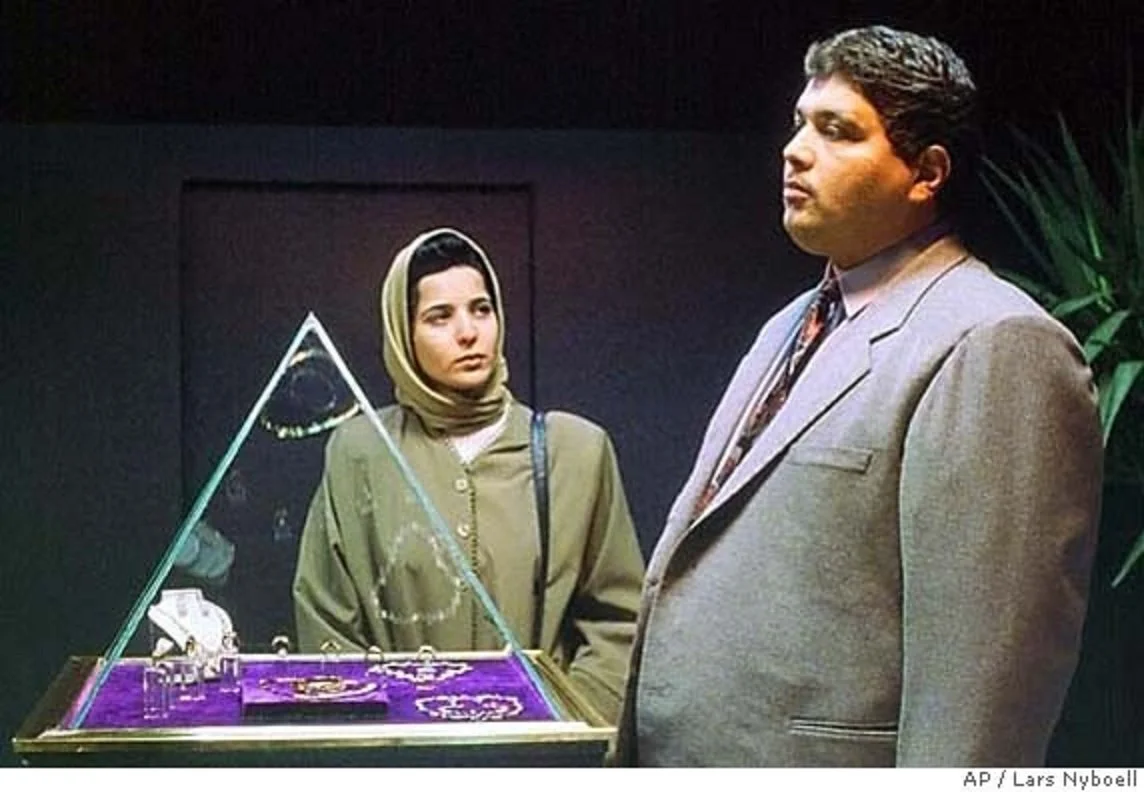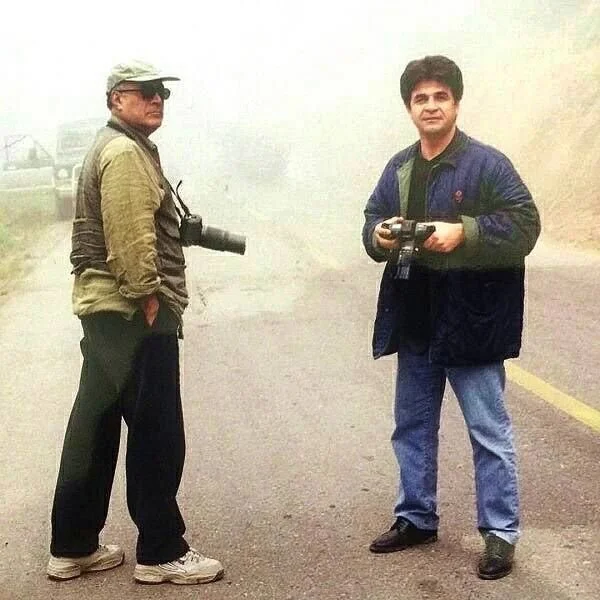Crimson Gold (2003)
This film begins with a subtle bang. Our lead, Hussein, is a heavy set man currently attempting a robbery at a jewelry store in Tehran. We hear him shatter glass display cases offscreen. As citizens watch him helplessly from outside, he paces back and forth aimlessly; it’s like he’s fed up. What we will find out is that we are going to watch a man who has had enough of being looked down on by society.
As Hussein aims the gun to his head, the camera pushes in on him as the gawkers clamor and protest. As soon as we hear the shot go off, we cut to his friend, Ali, racing on a scooter bike. What struck me is that we don’t see any blood sprayed onscreen. It’s not that kind of movie. But it is still exhilarating cause not only is he moving, lowering his body in panic and anxiety, but the camera is also moving towards him; this sort of double action in the opening sequence contains great tension.
I am going to be clear here; there is no character and character study like Hussein in cinema. I don’t think I’ve ever seen a character like his. The closest thing I could compare him to in American Cinema is probably Rocky; they are both sort of big stumblebums but there is more to Hussein.
Let’s start with Hussein’s face. It’s almost like it’s made of stone, reminding me of Buster Keaton. He has the same face for every emotion. Most importantly, his face is not the kind you’re going to find in Hollywood and I urge you to watch the film (and his compelling face) just for this reason.
In fact, Roger Ebert in his review wrote “he acts as little as it is possible and yet, paradoxically, we can’t take our eyes off him.”
Hussein is a food delivery worker. When he delivers, he is the type to look past the customer and observe the inside of their home, especially if they’re wealthy. Not in a creepy, invasive way. He simply wants to see what he’s missing.
The film contains real humanity. There is a very intriguing sequence where Hussein is detained and prevented from delivering food at a party. Soldiers stop him and others from entering. They are arresting women who they deem shouldn’t be partying. Hussein watches the party alongside a fifteen year old soldier, holding a massive gun. Hussein strikes up a conversation with the young man and asks him as he ever danced with girls or ever had any fun and the young man solemnly answers ‘No.’ I noticed these are two souls used to being on the sidelines, observing life pass them by.
Hussein does another curious thing; he offers the young man pizza. When he denies it, Hussein then approaches the soldiers and others being detained and offers them pizza. Some soldiers accept. Why does Hussein do this? So that the young man can freely accept and not feel he will be punished by his superiors who told him he cannot eat while on patrol. Hussein offers the young man more than pizza; he offers him humanity.
The pivotal scene that sets up the story happens when Hussein and Ali visit the jewelry store and are not let in. The owner, an older man of prudish authority, talks to them from behind the glass door. After this encounter, Hussein turns to Ali and says “He didn’t need to look at us like that.” Hussein is more insulted by the old man’s look than not being allowed in.
Later, Hussein and Ali and Ali’s sister, who Hussein is due to marry, revisit the jewelry store. This time Hussein is dressed in a suit and he wants to see the same old man who gave him the dirty look. They say they want to buy a necklace, but to Hussein it is not about the necklace. When the old man finally enters and tends to a richer, more sophisticated couple, Hussein whispers to Ali “He didn’t even look at us.”
The old man proceeds to get rid of them by telling them they should buy gold that can be quickly liquidated, assuming by their clothes and appearance that they are lower class. I’m not sure if Ali’s fiance genuinely gets it, but Hussein knows exactly what he is saying. That’s the impressive thing about Hussein’s character; his emotional intelligence is extremely high. He knows a rejection when he sees one. Outside the store, he has a panic attack where we think he is suffocating and he loosens his tie, and tries to get comfortable in his own skin again.
The film, simply put, is a fascinating masterwork as a collaboration by two masters; scripted by Abbas Kiarostami and directed by Jafar Panahi. It is a tragic, but necessary character study of an outsider and it dissects society’s humanity or lack-thereof. The camera simply watches Hussein observe his surroundings in his day to day and we are free to make our own judgments of his lifestyle and experiences.
Kiarostami in a ‘too cool for school’ pose and Panahi
Another important aspect to note is that the actor playing Hussein is a non professional actor. He is a real life pizza delivery worker with paranoid schizophrenia. The film never mentions his condition, which I love. But it is this blending of art and reality that make this film a must watch.



